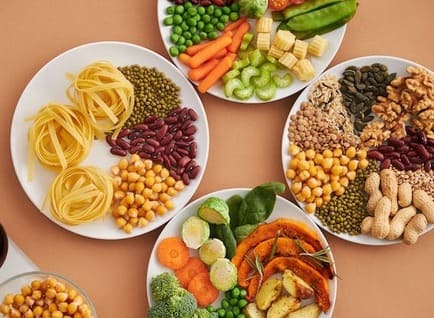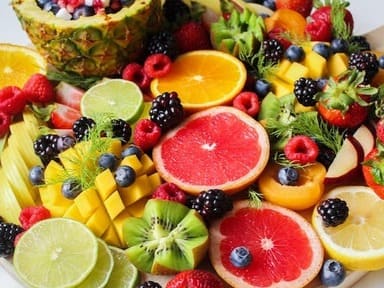Pregnancy changes everything, including what your body needs nutritionally. During these nine months, your nutritional requirements shift to support both your health and your baby’s development. Among all the nutrients you need, iron and folate are two of the most important. This blog looks at why iron and folate matter so much during pregnancy and how they support a healthy gestational period.

Why iron matters
Iron is a fundamental mineral needed to form hemoglobin, the protein in red blood cells that carries oxygen from the lungs to the rest of the body. Because your blood volume increases during pregnancy to support the growing baby, you need more iron than usual.
Without enough iron, your body can’t produce enough healthy red blood cells, which may lead to iron deficiency anemia. This is a common complication affecting 15-25% of pregnancies worldwide. It can cause:
- Persistent fatigue and weakness
- Shortness of breath and dizziness
- Pale skin and brittle nails
- Increased susceptibility to infections
- Difficulty concentrating
- Increased risk of preterm birth
- Higher chance of low birth weight babies
- Potential developmental concerns for your baby
Signs of Iron Deficiency During Pregnancy
Recognizing iron deficiency early can help prevent complications. Watch for these warning signs:
- Unusual fatigue that rest doesn’t relieve
- Pale skin, gums, and nail beds
- Rapid heartbeat or shortness of breath with minimal exertion
- Headaches and dizziness
- Cold hands and feet
- Cravings for non-food items (a condition called pica)
If you experience these symptoms, consult your healthcare provider, who may recommend blood tests to check your iron levels.
Good sources of iron for pregnant women
Lean meats like beef, pork, and poultry offer heme iron, which the body absorbs easily.
Fish varieties like tuna and salmon supply iron along with omega-3 fatty acids.
Beans, lentils, and chickpeas provide non-heme iron, which is especially important for vegetarian and vegan mothers.
Iron-fortified cereals and grains are additional sources that help meet daily requirements.
 |  |
|---|
Maximizing Iron Absorption
Not all the iron you consume gets absorbed. These strategies can help optimize absorption:
- Consume vitamin C-rich foods alongside iron-rich foods (citrus fruits, bell peppers, strawberries)
- Cook in cast iron cookware when preparing acidic foods
- Avoid drinking tea or coffee with meals (wait at least an hour before or after)
- Separate calcium supplements from iron-rich meals by 2-3 hours
- Consider the timing of prenatal vitamins that contain both calcium and iron
Also read about healthy weight gain during pregnancy
Why folate matters in pregnancy
Folate, also known as folic acid in its synthetic form, is a B-vitamin essential for fetal development, especially in early pregnancy. It helps prevent neural tube defects in the baby’s brain and spine. Getting enough folate matters even before conception, since the neural tube forms within the first weeks of pregnancy, often before you know you’re pregnant.
Sources of folate
Spinach, kale, and broccoli are good natural sources of folate, along with other essential nutrients.
Folic acid-fortified grain products like bread, pasta, and rice help meet daily requirements.
Citrus fruits such as oranges, grapefruits, and lemons provide natural folate.
Beans and lentils, in addition to their iron content, are also excellent sources of folate.
 |  |
|---|
Folate vs. Folic Acid: Understanding the Difference
Folate refers to the natural form found in foods, while folic acid is the synthetic version used in supplements and fortified foods. Some important distinctions:
- Folic acid is more stable during food processing and storage
- Folic acid has higher bioavailability (85% vs. 50% for food folate)
- Some women have genetic variations (MTHFR mutations) that affect how efficiently they process folic acid
If you have concerns about folic acid metabolism, discuss with your healthcare provider about methylfolate supplements, which may be more appropriate for certain individuals.
How iron and folate work together
Iron and folate each matter on their own, but they also work together during pregnancy. Iron helps form red blood cells, while folate protects against neural tube defects. Together, they support proper oxygen transport and neural development for your growing baby.
Monitoring Your Levels Throughout Pregnancy
Your healthcare provider will typically check your iron levels at your first prenatal visit and again between weeks 24-28. Additional testing may be recommended if:
- You have a history of anemia
- You’re carrying multiple babies
- You experienced heavy bleeding during pregnancy
- You follow a vegetarian or vegan diet
- You have digestive disorders that affect nutrient absorption
Understanding your test results helps personalize your nutrition plan throughout pregnancy.
Conclusion
Understanding why iron and folate matter is an important part of a healthy pregnancy. Small, consistent efforts to include nutrient-rich foods make a real difference over nine months.
Work with your healthcare team to monitor your levels, adjust supplements as needed, and address any concerns. Paying attention to these nutrients lowers the risk of complications and supports your baby’s development. A well-nourished body is the starting point for a healthy pregnancy.